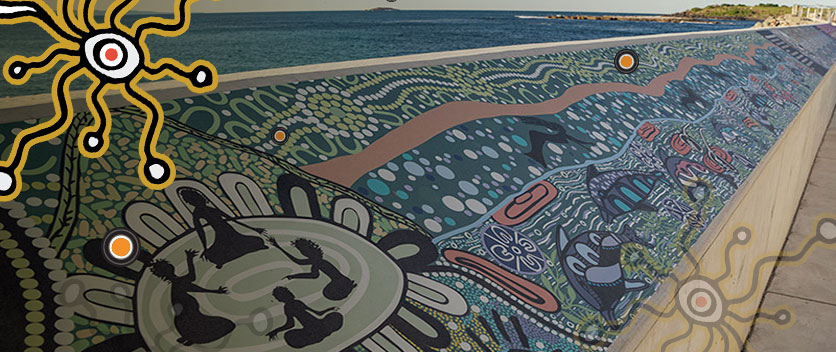What is native title?
Native title is the name Australian law gives to the traditional ownership of land and waters that have always belonged to Aboriginal people according to their traditions, laws and customs. The Commonwealth Native Title Act 1993 sets out how native title rights are to be recognised and protected.
The department is committed to managing Crown land consistently with the Commonwealth Native Title Act 1993.
Native title rights are different to and separate from the statutory right of Aboriginal Land Councils to make claims for land under the NSW Aboriginal Land Rights Act 1983.
Native title legislation
The Commonwealth Native Title Act 1993 was introduced following the High Court Mabo judgment and significantly amended following the High Court’s Wik decision.
The Act does 4 major things of relevance to the department:
- recognises native title rights exist in Australia where those rights have not been extinguished (e.g. by the grant of a freehold title)
- validates certain past actions carried out by governments
- includes a ‘future act regime’ that allows for governments to continue undertaking certain activities on the Crown estate where native title has not been extinguished
- states that compensation may be owing to native title holders for certain past and future acts.
How does Crown Lands get involved in native title claims?
Crown Lands assists the NSW Attorney General in negotiating consent determinations with native title groups. A determination is a decision by a court whether or not native title exists in a particular area of land or waters. The court makes a determination either when the NSW Government and native title group reach an agreement through mediation (a consent determination) or, if the parties are unable to agree, following a trial process (a litigated determination).
Separately, Crown Lands also assists with negotiating Indigenous land use agreements (ILUAs) with native title groups on behalf of the NSW Government. An ILUA is a voluntary agreement between native title groups and others regarding the use of land and waters, and can include terms regarding compensation.
What are native title certificates?
A provision in the Crown Land Management Act 2016 that has not been implemented and is currently under review.
Certificates were only intended to be issued on rare occasions when it may be relevant and evidence is available before native title is formally determined.
Where would I find information about registered native title claims?
Approximately half of NSW is currently under native title claims. Native title claims are made by application to the Federal Court.
Once an application is filed, it must be successfully registered with the National Native Title Tribunal (NNTT).
A full list of all the current registered native title claimant applications in NSW is available from the NNTT register of claims.
NNTT also provide a series of maps of native title claimant applications.
Will I be affected by a native title application?
When a claim is registered by the NNTT, the NNTT notifies people who have a registered interest in the claim area, such as a lease over Crown land. Notice of the claim is also published in local and national newspapers.
